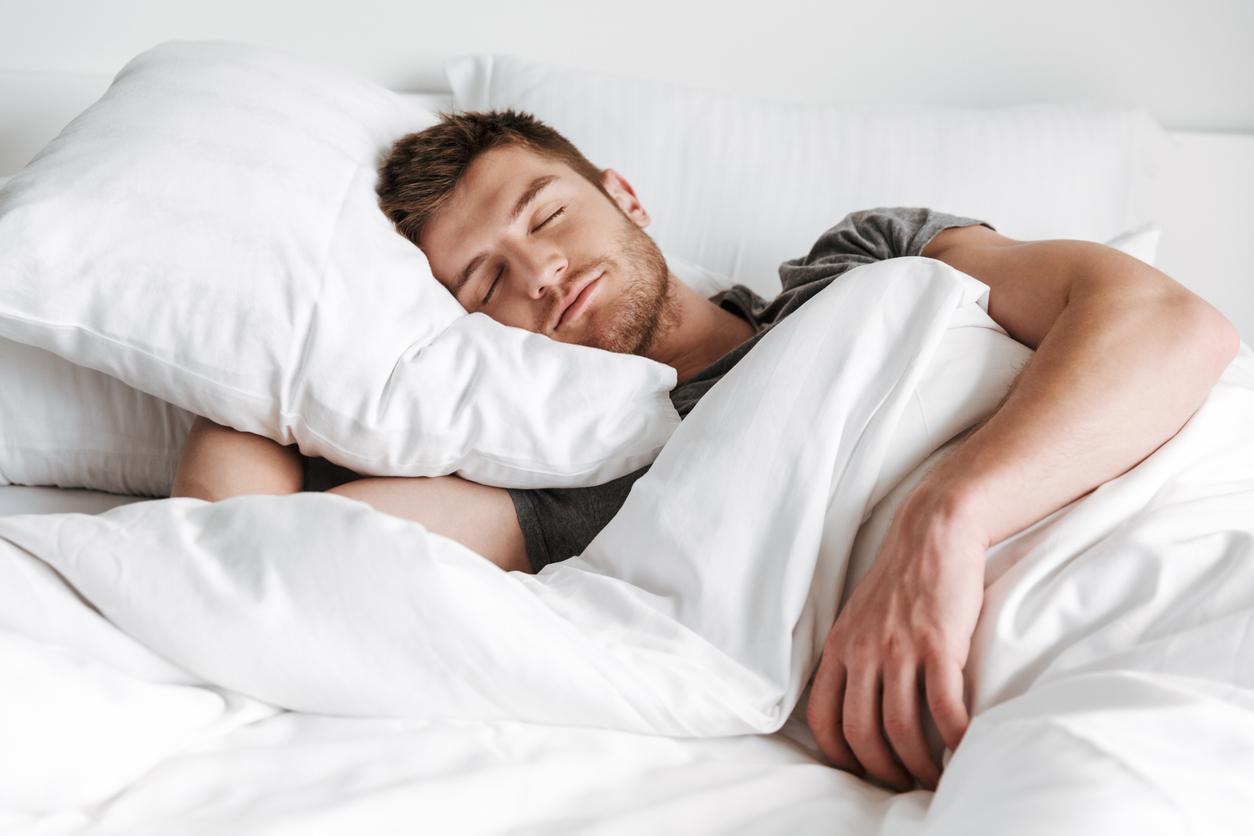Researchers advise sleeping less than thirty minutes and not dozing off in bed to have the most restful nap possible.

- Napping for more than 30 minutes is associated with a higher risk of obesity and hypertension.
- Sleeping in bed would be associated with a risk of hypertension which could be linked to “postural changes”.
- Short naps would be restorative, increase productivity and cognitive level.
At the end of April, scientists from the universities of Guadalajara (Mexico) and Murcia (Spanish) revealed, in a study published in the journal obesity, that naps longer than 30 minutes increased the risk of obesity and hypertension. Faced with these results, they decided to focus on the ideal modalities of the nap.
Ideal nap: sleep less than 30 minutes on your couch at noon or early afternoon
First, the team looked at the duration of the nap. She recommends sleeping less than 30 minutes. “We recommend so-called 10-minute preventative naps for people with narcolepsy and patients with sleep apnea who also need to take a nap to be active,” explained, to the newspaper El PaísFrancesca Cañellas, member of the Insomnia Working Group of the Spanish Sleep Society.
Next, the authors wondered where was the best place to take a short, restful nap. They think it’s best to sleep on your couch. “If you sleep in your bed there is a stronger link to hypertension than if you stay on the couch. It seems to be related to postural changes, but we are not sure,” said Marta Garaulet, professor of physiology at the University of Murcia. She also advises taking a midday or early afternoon nap rather than mid-afternoon.
“Short naps are restorative”
Marta Garaulet recalled that long naps “altered sleep latency, quality and quantity of nocturnal sleep”. “We are made to sleep at night and be awake during the day. If you happen to sleep during the day and reach stages of deep sleep, it’s like your body thinks it’s night. When of a short nap, you only enter sleep stages I or II, which are able to relax you, but not make you sleep soundly.In addition, a long nap makes you have a later chronotype: you eat dinner later and go to bed later, which is a circadian factor in poor health and obesity”.
On the other hand, “short naps are restorative”, specified Francesca Cañellas. These would increase productivity and cognitive level. Moreover, after sleeping for a short time, one would be more relaxed, more alert and in a better mood.

















